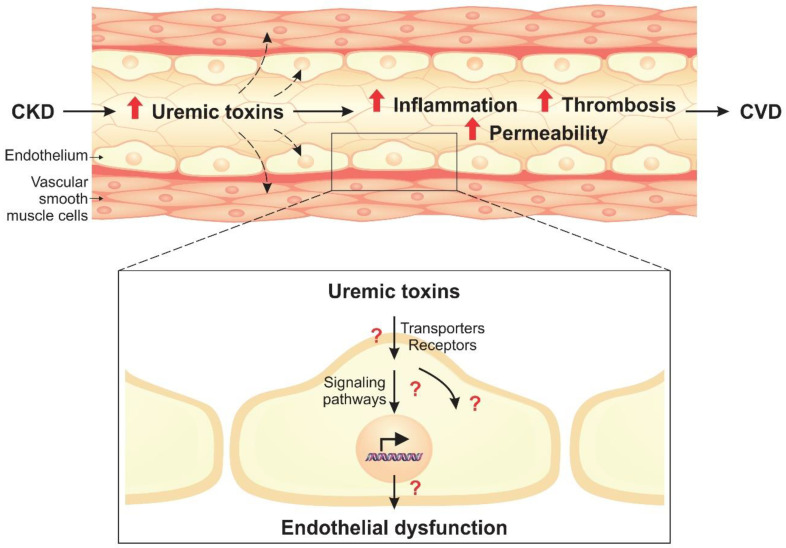Figure 1.
The progression of chronic kidney disease (CKD) results in the accumulation of uremic toxins in the bloodstream, which leads to endothelial dysfunction. Vascular endothelial cells exposed to uremic toxins have a proinflammatory and a prothrombotic phenotype, and the monolayer structure is damaged, increasing permeability. This impairment of endothelial function can contribute to cardiovascular diseases (CVD) pathogenesis.

